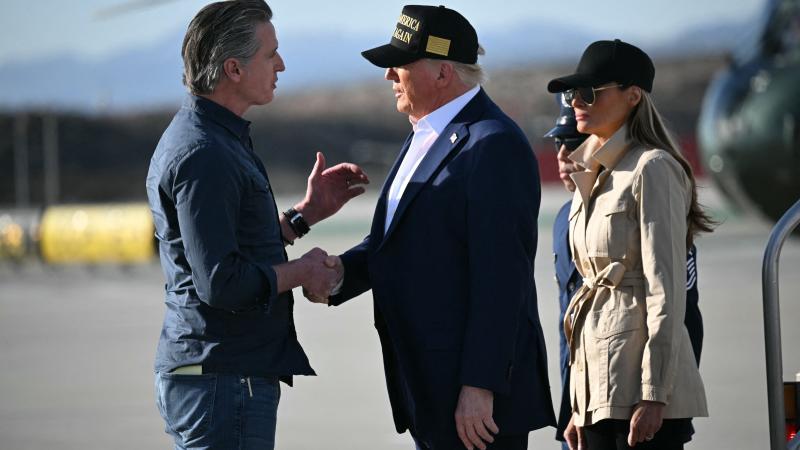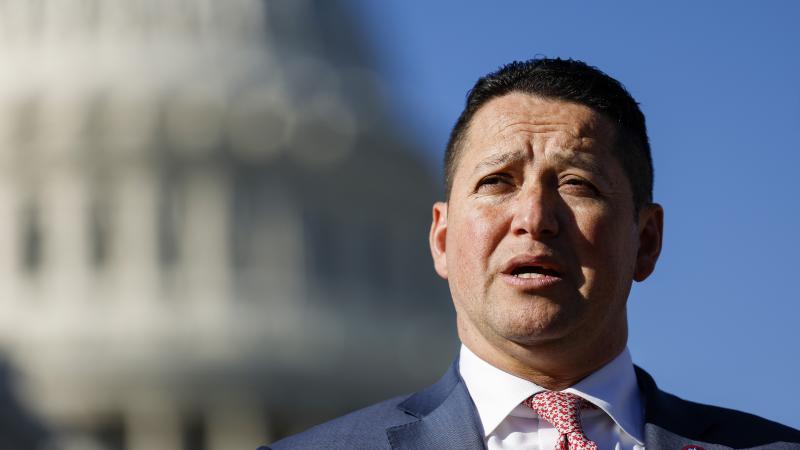Texas House passes election reform measure after months of delays
Passage comes roughly six months after the Senate bill was filed and after Democrats fled the state for nearly six weeks to stall passage.
The Texas House has passed election reform legislation that seeks to standardize voting protocols across the state.
Passage comes roughly six months after the Senate bill was filed and after Democrats fled the state for nearly six weeks in an attempt to sabotage it.
Lawmakers debated the bill for 12 hours Thursday, casting dozens of initials votes, before final passage came in a mostly partisan, 80 to 41 vote Friday.
Election integrity was identified as a key legislative priority of Gov. Greg Abbott’s in the regular legislative session, but House Republican leadership could not advance the bill.
It failed a second time in the first special legislative session after House Democrats absconded for Washington, D.C., claiming the bill would suppress voter turnout, particularly among minorities.
According to the bill summary, the Election Integrity Protection Act of 2021 would modify state statutes on voter registration; the conduct and security of elections, poll watchers and election officers; early voting by mail; set penalties for election fraud and interference; and make election processes uniform throughout the state.
It would eliminate drive-through and 24-hour early voting, which some counties used during the pandemic in 2020. It would expand early voting hours in some smaller and medium-sized counties and add ID requirements for voting by mail.
The marathon of voting Thursday came after numerous amendments were filed and after members of the legislature waited 37 days for Democrats to return to the state for the House to meet quorum. Prior to convening and making quorum, House Speaker Dade Phelan, R-Beaumont, issued arrest warrants, per house rules, for over 50 House Democrats. None were ever arrested.
On Monday, members of the public testified at a committee hearing, expressing consternation over the fact that the Senate version of the bill, SB1, had been replaced at the last minute by a different bill, HB3, in committee.
Since then, Rep. Andrew Murr, R–Junction, and other legislators added amendments back in to get HB3 closer to the SB1 provisions, hoping to bring the two versions closer together and speed up the reconciliation process.
Phelan said Friday that passage of the bill “marks a significant step forward in advancing the integrity of our elections.” He praised Murr for securing the bill’s passage “in a manner that was respectful of members representing the viewpoints of their communities and their districts.”
The grandson of Coke Stevenson, Murr, during his testimony on the House floor, recounted how his grandfather lost in the 1948 U.S. Senate election to Lyndon B. Johnson. Johnson had appeared to have lost the Democratic run-off primary to Stevenson, but six days after polls had closed, Ballot Box 13, containing 202 ballots, were found in Precinct 13. All ballots were cast in Johnson's favor. Johnson won due to the “missing” ballots that had been found. He went on to beat his Republican challenger and later become president.
Many reforms incorporated in SB1 were proposed by Sen. Paul Bettencourt, R-Houston, after multiple fraud allegations were made in Harris County during and after the 2020 election, and subsequent lawsuits were filed, related to alleged fraudulent ballots and ballot harvesting schemes, and 24-hour voting and mobile polling places put in place by an acting Harris County clerk who only held his position for a few months.
Rep. Bryan Slaton, R-Royce City, added an amendment that passed, which requires four random counties in the state to undergo election audits after every general election.
“Victory for election integrity and audits! This evening, the Texas House adopted my amendment to SB 1, 63-53, to require that audits of all elections be conducted in 4 randomly selected counties, including 2 large counties, after each General election,” Slaton said.
With a deadline of Sept. 5 to finalize the bill during the second special session or start all over again in a third session, the Senate must concur with the House changes before it can get to Abbott's desk – meaning, it can agree to all the House bill changes, which is unlikely, or it can request a conference committee. Members of the House and Senate would then reconcile the differences in order to get a final bill to the floor of both chambers for a vote.
As the bill was being debated, Abbott said, “This legislation will make our elections process fair and uniform.” He thanked the bills’ sponsors “for fighting to make it easier to vote and harder to cheat,” adding, “I look forward to signing this bill into law.”
Another 16 legislative items remain on the table, which are expected to be addressed during a third legislative session. Abbott has said he will call consecutive special sessions until all measures he’s listed as priorities are voted on.














